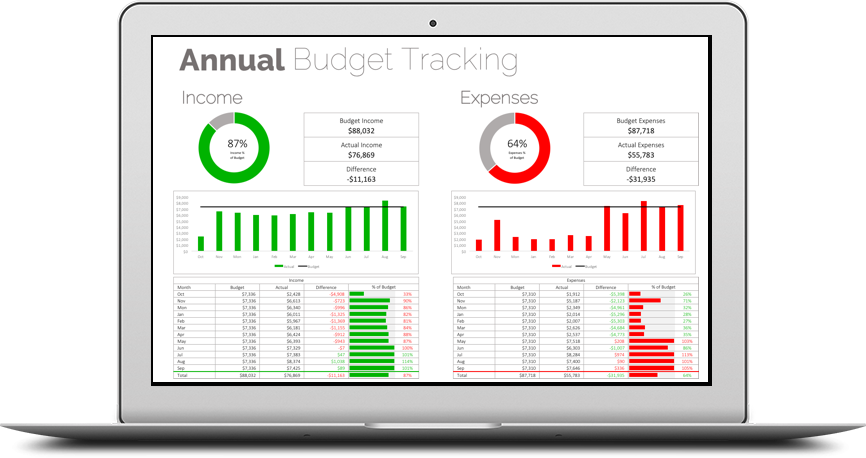3 Tips For Setting Powerful Financial Goals
The problem with financial goals is that they’re not very tangible. They’re just numbers, they take a long time, they seem impossibly huge.
When it comes to financial goals it’s very easy to push them onto your “future self”.
That’s not something “Owen of Today” needs to worry about, “Owen of The Future” can figure it out.
When making money decisions there’s always a bit of tension between your “present self” and your “future self”.
“Owen of Today” wants to make today the best day possible and doesn’t care much about the future, while “Owen of The Future” wants to think about the future, even if that means sacrificing a bit today.
“Owen of Today” wants to buy a motorcycle and ride around the countryside all afternoon, but “Owen of The Future” says we need to save for financial independence, RESPs, and a new roof.
Which version of myself wins? It all comes down to how well I’ve set my goals. Without a powerful financial goal “Owen of Today” will win every time, and that’s not very healthy.
Sometimes “Owen of Today” needs to win, and sometimes “Owen of The Future” needs to win, obviously there needs to be a balance. But without a powerful financial goal “Owen of Today” will win every… single… time…
When deciding between spending money today or saving for the future, setting a financial goal can make all the difference. Setting a POWERFUL financial goal helps you easily weigh decisions between your “current self” and your “future self”.
How Much Do You Really Need?
One of the hardest things about setting a financial goal is the math. To create a powerful financial goal, you need to figure out exactly how much you need. What is that $ amount you’re trying to reach? And is it realistic?
This can be tough. Very tough. Many financial goals are somewhat intangible. There is no guideline. No specific formula. Goals can vary greatly from person to person.
If I want to feel financially secure. How much do I need?
If I want to reach financial independence. How much do I need?
If I want to be able to travel 1-2 times per year. How much do I need?
These are hard questions to answer and require a lot of thought and self-reflection. The amount of money I personally need to travel 1-2 times per year will be different than what you need. It’ll depend on where we want to go, our style of travel, how much we can pay for in points etc etc.
To make things more difficult you also need to factor in compound interest. You could save your way to $1,000,000 but it would take a very long time. It’s much easier to invest your way to $1,000,000 and get the benefit of compound interest.
Financial calculators are a great way to figure out exactly how much you need to reach your financial goal… but financial calculators can be intimidating, and this is where many people hit a wall.
If you find you’re avoiding setting a financial goal because of the math, then it might be time to seek out some help from a friend, a family member or a professional.
New blog posts weekly!
Tax planning, benefit optimization, budgeting, family planning, retirement planning and more...

It’s All About Time
When I’m setting powerful financial goals “Owen of Today” often gets in the way. “Owen of Today” wants everything as soon as possible. “Owen of Today” is all about instant gratification and he doesn’t want to wait.
But when setting a powerful financial goal, we benefit greatly from time. More time makes even the most difficult goal easier to achieve. Compound interest can do amazing things if you give it enough time. All it takes is patience.
Setting a financial goal with too short a time frame makes it unnecessarily difficult. This causes unnecessary stress and hardship.
Could I save $1,000,000 in 10 years? Maybe.
Could I save $1,000,000 in 40 years? Yes, definitely!
Don’t make your goals too difficult. A powerful financial goal should be realistic and the best way to make a difficult goal more realistic is to give yourself a bit more time.
Start working towards your goals a soon as possible. The earlier the better. As the old proverb goes, the best time to plant a tree was 20 years ago, the second best time is now.
“How do you eat an elephant? Not in one bite. Not in two bites. You eat an elephant by taking a lot of little bites.”
Bite-Sized Chunks
How do you eat an elephant? Not in one bite. Not in two bites. You eat an elephant by taking a lot of little bites. (This is the also way I end up eating an entire bag of Doritos in 20 minutes! One chip, two chips… BAM! The entire bag is gone.)
Setting a financial goal works the same way. You have to take lots of little bites.
Saving $1,000,000 seems like a HUGE goal at first. It feels impossibly huge. Monstrously huge. So huge that you feel like giving up before you even begin.
Don’t focus on the end goal, break it down into smaller chunks. Break down that HUGE scary goal into smaller bite-sized chunks. Suddenly it doesn’t seem so crazy anymore.
What do you need to save/invest to hit $1,000,000? About $18-$20 per day. That seems waaaaaay more reasonable. I spend $20 on lunch some days! A pair of jeans is like 5-days worth of my $1,000,000 goal. A couple of drinks at the bar can cost me more than my $1,000,000 goal!
Breaking down your goal into smaller chunks makes it seem way more reasonable. It also makes it much easier to make decisions. Do I buy lunch today or do I want $1,000,000? Breaking down your goal turns to from a weak financial goal into a POWERFUL financial goal.
What’s your powerful financial goal?
Find out how we want to have $1,000,000 in our TFSA by age 55.
Join over 250,000 people reading PlanEasy.ca each year. New blog posts weekly!
Tax planning, benefit optimization, budgeting, family planning, retirement planning and more...
Join over 250,000 people reading PlanEasy.ca each year. New blog posts weekly!
Tax planning, benefit optimization, budgeting, family planning, retirement planning and more...





I don’t want to eat an elephant though!! 🙁
But yeah, baby steps are the way to go!
Baby steps are definitely the way to go (although babies are notoriously unstable on their feet!)